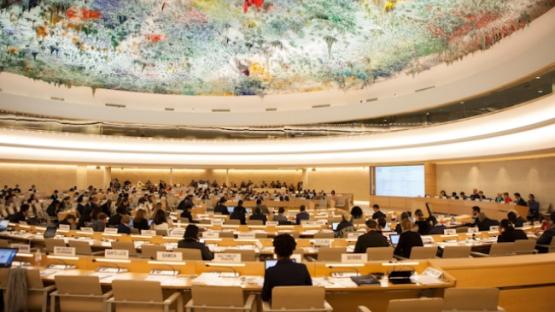
Credit: Siavosh Hosseini

Credit: Siavosh Hosseini
On 10 March 2025, Privacy International (PI) attended the 32nd Session of the Committee of the Convention on the the Rights of Persons with Disabilities (CRPD Committee) in Geneva, and participated in a private briefing to the Committee on the European Union (EU).
As part of PI's work promoting Economic and Social Justice, we have been advocating on concerns surrounding the link between privacy, personal data and technology use and the rights of persons with disabilities. To this end, we continued our engagement with CRPD Committee at their invitation, and delivered an oral briefing on human rights concerns of persons with disabilities accessing social services and welfare schemes in EU countries.
Our briefing highlighted examples from France, Austria, Denmark and the Netherlands to caution against the use of Automated Decision-Making (ADM) in social welfare and benefit systems and the dangers their use entails. This includes the right not to be subjected to ADM without meaningful human intervention, and the classification of such ADM-powered systems for social welfare purposes as "high risk" under the EU AI Act (see Recital 58) which also introduces new obligations for deployers of these systems.
We called upon the Committee to urge the EU and its institutions to:
1. Ensure members states uphold and enforce the EU GDPR;
2. Ensure member states fulfill and enforce the obligations stipulated in the EU AI Act regarding the use of AI systems in social welfare; and,
3. Ensure the digital technologies are deployed in accordance with the rights of persons with disabilities and with data protection principles
Read the full text our our oral intervention below.
PI will continue to research, expose and advocate against the exploitation of personal data and the weaponisation of technologies wherever they infringe upon the rights of people with disabilities, and intrude excessively upon the private lives of all those seeking to access state support in order to live in safety and with dignity.